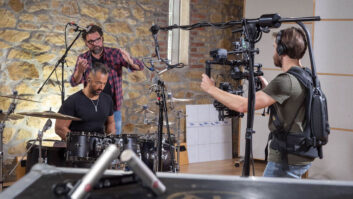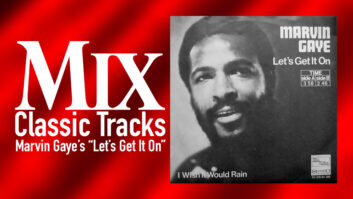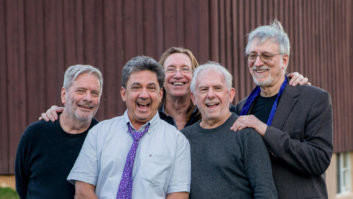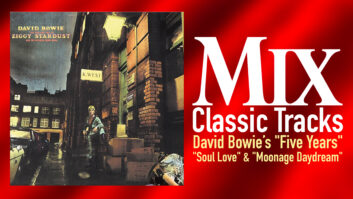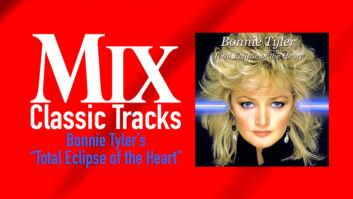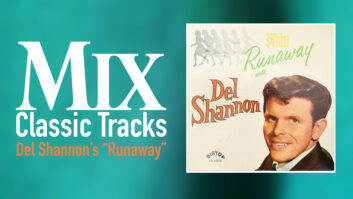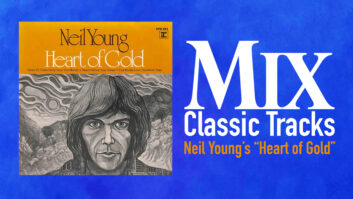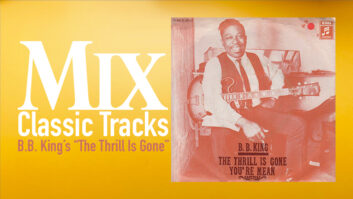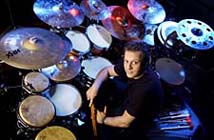
Dave Weckl
Photo: Gene Martin
The “Sessions” section in Mix‘s January 2009 issue offers a look at how session drummers have adapted to the rise in personal studios and decline in major studio session work in “Custom Drum Tracks To Go,” which profiles the services offered by veteran Los Angeles–based session pros Dave Weckl and Russ Miller, as well as Virginia-based drummer Craig Sowby. In that article, all three discuss dedicating their own project studios to recording high-quality acoustic drum tracks on a work-for-hire basis. Clients submit their projects directly to the drummer and generally pay a session rate per song, while cartage and studio fees are unnecessary.

Russ Miller
Photo: Alex Solca
Miller says of working in his own room: “I sit down and literally, it takes more time to get the producer’s or the artist’s Pro Tools session up and playing back than it does for me to cut the song, usually. I’m super-comfortable, we get the part together, play it down a few times, and [the client is] in and out of here—a seven-, eight-hour session becomes an hour and a half. How much more comfortable could you be than at your place on your drums, with your mics, with your mix?”
“I try and make it as easy as possible for the client,” Weckl says. “When they get my tracks, all they basically have to do is put up the faders and they’re going to have my sound right away. I even give them my idea of the ambience that I like for the song, recorded on separate tracks. So if they like my sound, there’s not a lot to do mix-wise here, either! It of course makes such a difference to have a real person playing the correct feel for your music with all the air being pushed around and recorded at the same time.”
In these exclusive interviews, L.A. drummers Weckl and Miller further share their observations, insights and experiences in building their current businesses.
How did you get started with providing custom drum tracks, and about when did it start to happen for you?
Weckl: I guess I’d have to say late ’90s for me, on any serious level of doing real tracks for people outside my own world of friends and working partners for demos. I had been waiting for the ease of it to happen for many years—since the mid-’80s—and had a vision that as soon as the technology was available and I could afford decent studio gear, I would promote my services and do it as much as I could. It really started taking off for me sometime after the turn of the century. I had my new studio with a full-blown Pro Tools HD rig, decent mic pre’s, and a kit always set up ready to rock. I keep upgrading all the time; it’s a never-ending quest, of course, to get “the sound” —whatever that is. It was a heavy investment at first, but paid itself off fairly quickly.
Miller: It started to happen in the early 2000s. Once I had played on some records that were commercially successful—like the Nelly Furtado and the Hilary Duff records—I started to get e-mails and calls from people in other countries [asking me] to come and play on [their records]. I would go there and it got pretty radical for a little while, where I had multiple kits here [L.A.] and drums in London, New York, Nashville and Tokyo. For years I was going all over the place, and then it started to chisel down to where they were going, “Hey, instead of coming to Paris, can you do it in a studio there? We’ll just upload tracks to a server.” And then all of a sudden I thought, well, this is something I can do in my studio. So finally I started taking the advances and the budgets and put together a room. I’ve done a lot of major movies and major label albums out of my room, but it costs a lot of money to put this stuff together. The biggest key was the design of the room and then the gear.
Dave, were you one of the first drummers to do this? What gave you the idea?
Weckl: I think I was probably one of the first to do this on a serious level of actually promoting it as a service. I don’t recall anything or anyone giving me the idea. Like I said, it had been a dream and a vision for so long. I had to wait for the rest of the planet to catch up, really. I had been doing project records for a long time, where my tracks were laid down first to sequences, or existing tracks.
Is having your own room the new definition of a “session drummer?” Is it a response to the general decline in traditional session work? It seems like a dramatic shift is taking place.
Weckl: I’ve been doing this for so long now that any “shift” for me came a long time ago! I travel so much as a touring drummer that I really haven’t had much of a “studio work” existence in the past 10 years or so—most certainly not like I had in New York in the ’80s and in L.A. in the early ’90s. That’s because there isn’t so much of that kind of work anymore, and also because I just don’t hustle it anymore, either. I used to get off the road and make tons of calls to let everyone—contractors, producers—know I was back. Now, through my own studio, I have work waiting, both new projects and some still needing to be finished—too much sometimes—that I don’t make the calls anymore. I’m very happy working out of my own room.
Miller: Last year is when it shifted pretty dramatically. My cartage company didn’t go out of business, but they sold their old warehouse. When you see that, you know that the days of everybody going to studios all around town are coming to a close. It’s a pretty clear sign. I averaged over 100 cartage runs and then in 2007, it dropped to 50, and this year [2008] it’s been like 15. Everything else has been in my room, or I’ve been on the road with a band. Generally speaking, 20 percent of what I was doing was coming out of my room, and 80 percent somewhere else. And it’s definitely flipped—80 percent is coming out of here.
I’ve done [the movies] Chicken Little, Resident Evil Apocalypse, Silent Hill and Lakeview Terrace, where I’m doing all of the drums and percussion here. Right now I’m working on Steve Perry’s album. It’s not even a question anymore; everybody comes here. I’ll go out on the road and come back, and there will be sessions waiting to happen, and I try to turn them around in a timely manner.

Dave Weckl
Photo: Andy Amyx
Weckl: Most of my clients are recording artists or producers
doing their own CDs. Most come to me because they want my sound, my
playing, and in some cases, my name, on their project. My clients range
from local players/producers here in L.A. and all over the U.S., to a
really diversified list worldwide.
I have four or five clients in Turkey, a
couple in Greece, France, Italy, and many other countries. The list is
long, and the styles are diverse. In Turkey alone it varies from pop
stars [Emre Altug, Sertab Erener] to a fantastic bouzouki player [Orhan
Ozman] that combines ethnic music from the region with jazz, and a
talented jazz piano player [Genco Ari]. I just played on a rock opera
from Italy, and just finished the second CD of bass player/composer
Yiorgos Fakanas in Greece. Jeff Lorber comes over with his hard drive
every so often for either his own record or someone else [who] he is
producing, as does Mitch Foreman, another great
keyboardist/artist/producer here in L.A. I’m constantly getting a song
here or a whole CD there, coming in to record. Mixing records is
something I’m doing more of now, too, all stemming from this initial
tracking service.
People that don’t know me personally find me generally through my Website, where I have a page dedicated to promoting this service, along with mixing and producing. I also belong to eSession.
I was one of the first to sign up on their site a few years ago. I’m
all for as much promotion as possible, and sites and services like
eSession are just another way for lots of people to find you and check
you out.

Russ Miller’s Yamaha drum set at R.M.I. Music Productions
Photo courtesy of R.M.I. Music Productions
Do you think it’s possible in this day and
age for a drummer to make a living in music without learning to record
acoustic drums, or setting up a studio?
Miller: I don’t know if
it’s possible at this point to blast into L.A. or New York as a
25-year-old wanting to break in and become a seriously working session
guy that doesn’t have a room at all. Most guys who did that when it was
[still] possible to do that 10 years ago, we all have rooms [now] and
we’re all doing it this way. Vinnie [Colaiuta], J.R. [Robinson] and
Weckl: These are the biggest guys in the industry and they have rooms.
Weckl: I have always professed to any students I’ve ever had to learn as much about the music
business as you can—it’s not just the “drumming” business; that is a
very narrow scope, especially these days. So yes, learn about
engineering and sound, develop the ears for it. Get your own room and
offer the service—sure, why not! Oh yeah, practice and get good on the
drums, playing and tuning them!
Certainly, quite a lot is involved with establishing and maintaining a successful custom drum track business.
Weckl: You are right, it is
a lot. It’s why most of us who do this are used to the 12-to-15 hour
days in the studio. You get immersed in it, and I have to say, I love
it. It’s a nice feeling to have your hobby be your profession as well!
That’s how I feel about the studio aspect of it. I finally feel like
I’m living my dream: to have my own studio and be able to provide
musical, great sounding drum tracks for people who want them, without
ever having to leave the house…me or the client!
Matt Gallagher is an assistant editor at Mix.
